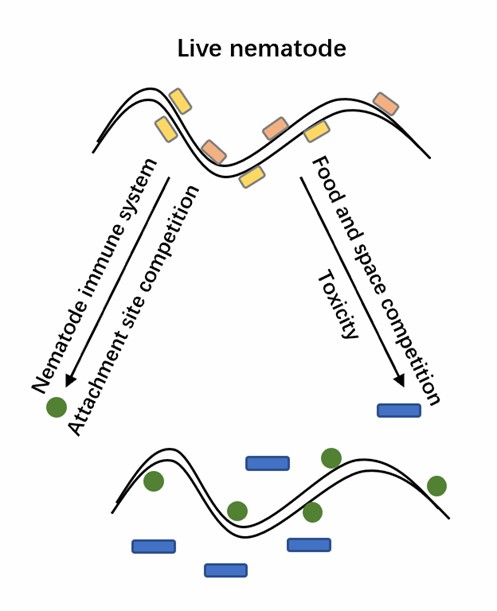Analysis of Pathogenic Effects of Nematode Companion Microorganisms
A variety of biological factors are involved in the growth, reproduction, infection, and pathogenicity of nematodes, forming a complex micro-ecosystem. For example, pine wood nematodes form a close companion relationship with their surface microorganisms. The presence of nematodes is conducive to the reproduction and virulence of the associated bacteria. In turn, the associated bacteria can provide some nutrients and favorable environmental conditions for the growth, development, diffusion, and reproduction of pine wood nematodes. The associated fungi can provide food for nematodes, maintain the population, and increase the infection and diffusion rate of the nematode.
Lifeasible provides analysis of the pathogenic effects of nematode companion microorganisms in plants to help our customers worldwide in plant science research. Our platform is equipped with cutting-edge facilities and professional experts to support research. Here, we provide various services according to customers' demands.
- The role of companion microorganisms in wilting and pathogenicity of plant nematodes has been paid much attention, especially the role of pathogenic bacteria carried by nematodes in wilting of plant nematodes a hot topic of research and debate. For example, plant toxins are produced by microorganisms associated with pine wood nematodes, which indirectly affect the pathogenesis of pine wood nematodes.
 Fig.1 Pathogenic effects of nematode companion microorganisms.
Fig.1 Pathogenic effects of nematode companion microorganisms.
- Lifeasible provides analysis services of nematode companion microorganisms producing plant toxins, including Pseudomonas, P. fluorescens, Bacillus cereus, Burkholderia arboris, Serratia, Enterobacter, Pantoea, and so on, which can produce a variety of plant toxins, causing harm to the host callus or small seedlings.
- Most importantly, in the research process, we help customers analyze specific problems according to different strains, tree species, and site environments.
- Nematode companion microorganisms can also decompose phytochemical defense substances and eliminate the inhibitory effect of host defense products on nematodes, thus contributing to the pathogenesis of nematodes.
- We provide analysis services of nematode companion microorganisms breaking down phytochemical defenses, including Serratia, Pseudomonas, Stenotrophomonas maltophilia, and others, which has reactive oxygen species and terpene degradation activity, contributing to the mass reproduction of plant nematode in the hosts.
- In addition, we demonstrate the degradation and metabolism of exogenous toxic substances by nematode companion microorganisms through genome, transcriptome, and 16s rDNA amplicons sequencing.
Lifeasible has a long-term commitment to the development and application of plant nematodes. We are pleased to use our extensive experience and advanced platform to provide satisfactory service and qualified products to meet the needs of our customers. If you are interested in our services or have any questions, please feel free to contact us or make an online inquiry.
For research or industrial raw materials, not for personal medical use!
 Fig.1 Pathogenic effects of nematode companion microorganisms.
Fig.1 Pathogenic effects of nematode companion microorganisms.